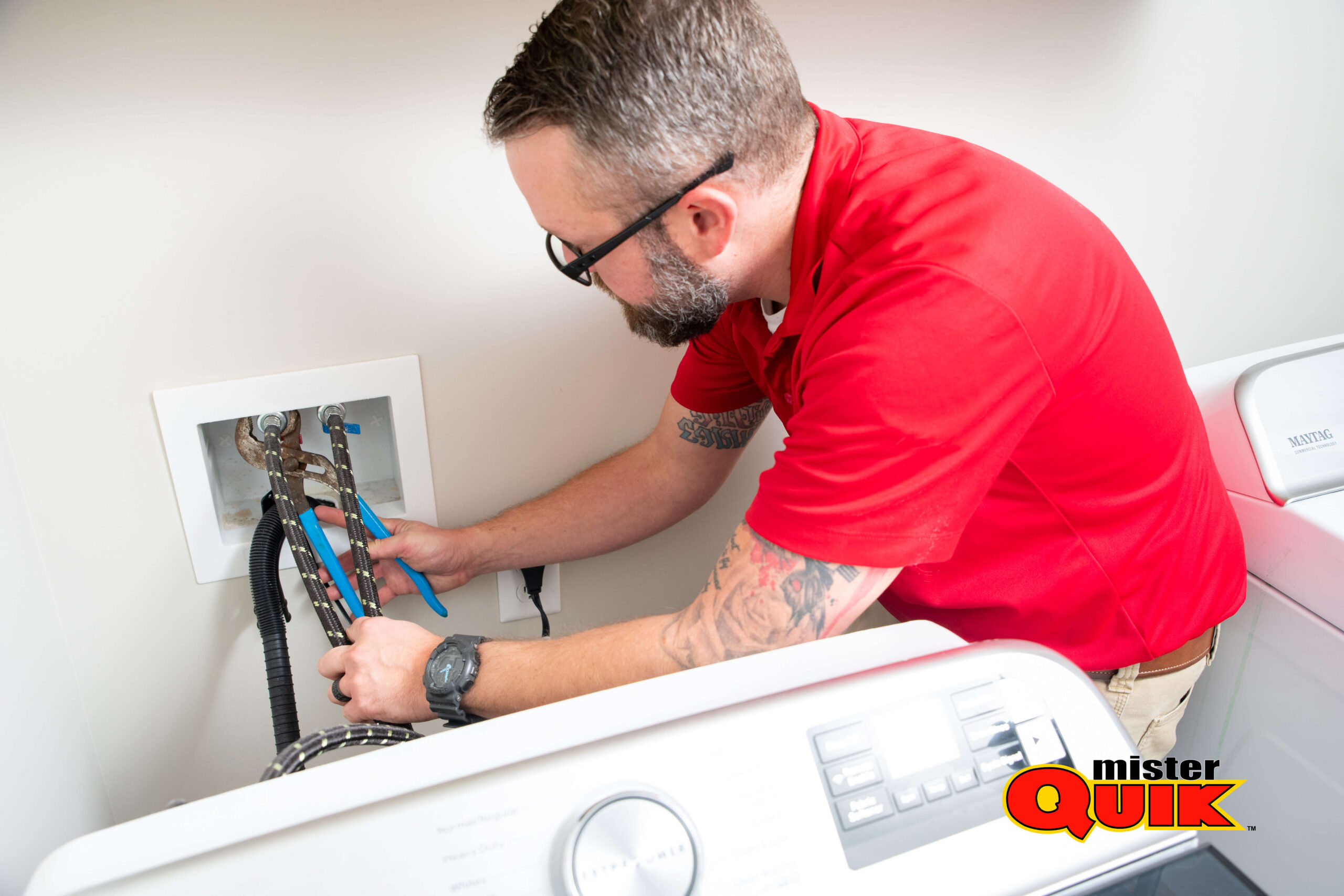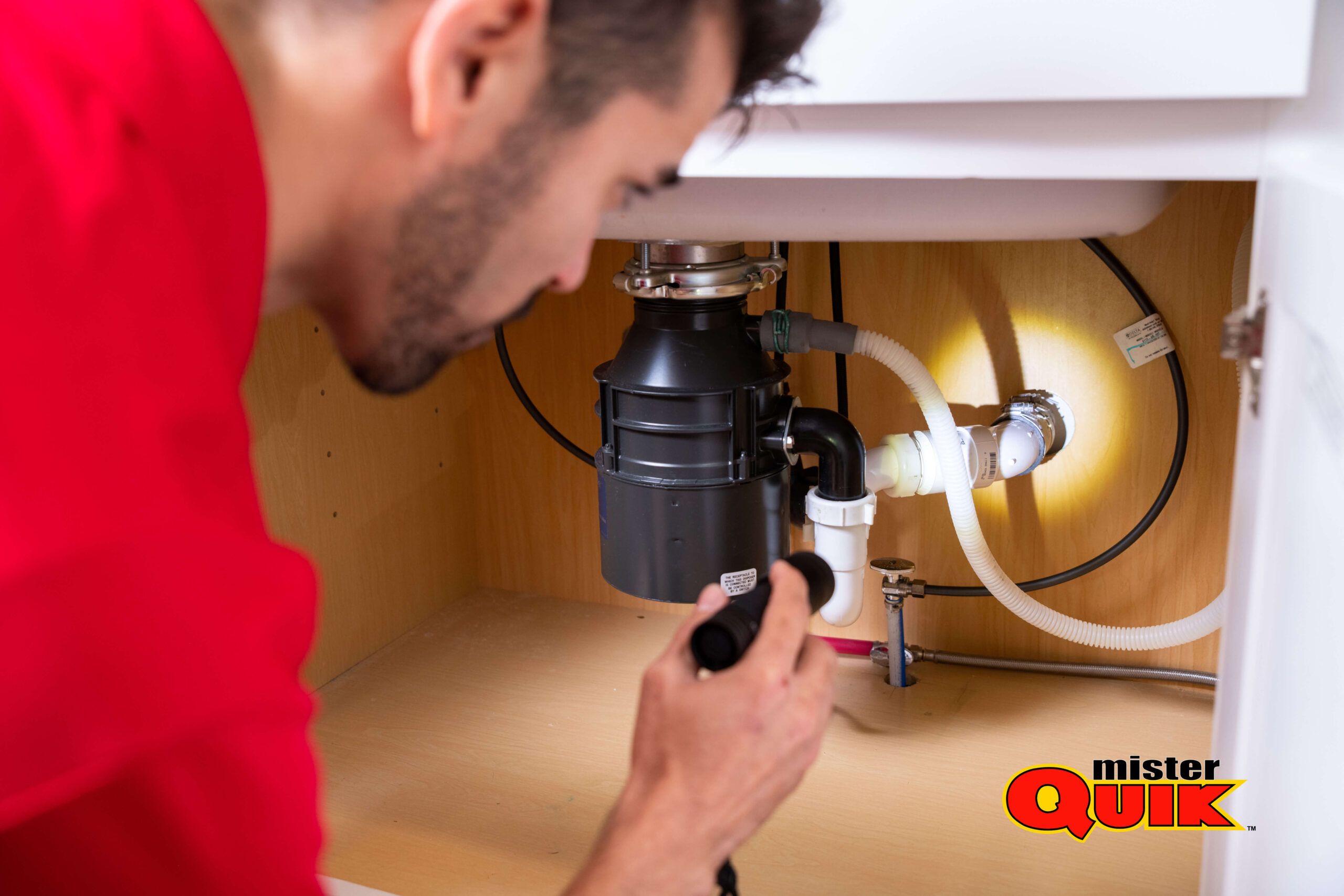Water Quality Test Fishers Indiana

Tests for Water
Ensuring the safety of your water is crucial for your family’s health. Understanding the various tests for water can help you identify potential contaminants and make informed decisions about water quality. Let’s explore the different types of water tests available to help you maintain clean and safe drinking water:
Types of Water Tests:
1.Basic Water Quality Test:
- Evaluates the overall quality of your water by testing for common contaminants such as pH levels, turbidity, and total dissolved solids (TDS).
- Provides a broad overview of your water’s health and suitability for drinking, cooking, and other household uses.
2.Microbiological Testing:
- Checks for the presence of harmful bacteria, viruses, and parasites in your water supply, including E. coli, coliform bacteria, and giardia.
- Ensures that your water is free from pathogens that can cause waterborne illnesses and gastrointestinal issues.
3.Chemical Contaminant Analysis:
- Detects specific chemical pollutants such as heavy metals (lead, arsenic), pesticides, herbicides, and volatile organic compounds (VOCs).
- Helps identify potential sources of contamination and assesses the health risks associated with exposure to these chemicals.
4.Radon Testing:
- Measures the level of radon gas dissolved in your water, which can pose serious health risks when ingested or inhaled.
- Especially important for homes served by private wells, where radon levels may be higher due to geological factors.
5.Lead Testing:
- Focuses on detecting lead contamination in your water, a common concern in older homes with lead pipes or plumbing fixtures.
- Protects against lead exposure, which can cause developmental delays, learning disabilities, and other adverse health effects, especially in children.
6.Arsenic Testing:
- Identifies the presence of arsenic, a naturally occurring toxic metal, in your water supply.
- Helps mitigate the risks of arsenic exposure, which can lead to various health problems, including skin lesions, cardiovascular diseases, and certain cancers.
7.Nitrate and Nitrite Testing:
- Measures the levels of nitrates and nitrites in your water, which can come from fertilizers, septic systems, and industrial runoff.
- Crucial for protecting infants from methemoglobinemia and assessing potential contamination from agricultural activities.
8.Chlorine Testing:
- Assesses the residual chlorine levels in your water, commonly used as a disinfectant in municipal water treatment plants.
- Ensures that chlorine levels are within safe limits for consumption and prevents the formation of disinfection byproducts (DBPs) that may pose health risks.
By conducting comprehensive water tests, you can gain valuable insights into your water quality and take appropriate measures to address any issues. Prioritize your family’s health and well-being by ensuring your water is clean and safe to use.
For expert guidance on water testing and solutions tailored to your specific needs, trust Mister Quik Home Services in Fishers. We’re committed to providing reliable services to help you maintain high-quality water for your household.
Water Quality Testing Near Me
Seeking water quality testing near you is essential for ensuring the safety and purity of your drinking water. Let’s explore the importance and process of water quality testing in your area:
Testing helps identify potential contaminants in your water supply, ensuring it meets safety standards and is free from harmful pollutants.
By detecting contaminants early, you can safeguard your family's health from waterborne illnesses and long-term health risks associated with exposure to toxins.
Regular testing provides peace of mind, knowing that your drinking water is clean, safe, and free from harmful substances.
A trained technician collects water samples from various points in your home, including taps and faucets used for drinking and cooking.
Once the analysis is complete, you'll receive a detailed report outlining the findings, including any contaminants detected and their concentrations.
It's recommended to test your water annually for common contaminants such as bacteria, lead, nitrates, and other pollutants.
Test your water after any significant changes, such as a new well, plumbing system upgrades, or environmental events that may affect water quality.
If you notice any changes in water color, taste, or odor, or if you experience unexplained health issues, consider testing your water promptly.
Choose a service provider with extensive experience in water quality testing and a track record of delivering accurate and timely results.
Opt for a testing service that offers a wide range of testing options to assess various contaminants and provide tailored solutions based on your specific needs.
In conclusion, water quality testing near you is a crucial step in protecting your health and ensuring access to clean, safe drinking water. By understanding the importance of testing and choosing a reputable service provider, you can make informed decisions to safeguard your family's well-being.
For reliable water quality testing services and expert guidance, trust Mister Quik Home Services in Fishers. We're dedicated to helping you maintain healthy water quality and peace of mind in your home.
Testing the quality of water involves various methods to assess its safety and purity for consumption and other uses. These methods typically include physical, chemical, and microbiological analyses to detect contaminants such as heavy metals, pathogens, organic compounds, and pollutants. Parameters such as pH, turbidity, conductivity, dissolved oxygen levels, and specific chemical concentrations are measured against regulatory standards to ensure water meets health and environmental requirements. Testing may be conducted regularly by certified laboratories or using field testing kits for immediate assessments, enabling timely interventions to maintain or improve water quality.
Testing the quality of water involves various methods to assess its safety and purity for consumption and other uses. These methods typically include physical, chemical, and microbiological analyses to detect contaminants such as heavy metals, pathogens, organic compounds, and pollutants. Parameters such as pH, turbidity, conductivity, dissolved oxygen levels, and specific chemical concentrations are measured against regulatory standards to ensure water meets health and environmental requirements. Testing may be conducted regularly by certified laboratories or using field testing kits for immediate assessments, enabling timely interventions to maintain or improve water quality.
To ensure the quality of your water, start by conducting a visual inspection for any unusual color, odor, or cloudiness. Utilize at-home water testing kits to assess pH levels, hardness, and the presence of common contaminants such as lead, bacteria, or chemicals. Additionally, consider sending samples to certified laboratories for comprehensive analysis, especially if you have specific concerns about pollutants or if you rely on well water. Regular maintenance of water filtration systems, if applicable, is also crucial for maintaining water quality over time. Finally, staying informed about local water quality reports and regulations can provide valuable insights into potential issues within your area’s water supply.
To get your local water tested, start by contacting your municipal water department or local health department, as they often offer testing services or can direct you to certified laboratories. You can also search online for accredited water testing labs in your area. Some companies provide DIY test kits that you can use at home and send back for analysis. Ensure that whichever method you choose complies with local regulations and provides comprehensive testing for contaminants relevant to your region. Prices for testing services vary depending on the level of analysis required and the provider you choose.
Testing the quality of water at home can be accomplished through various methods. One common approach is to use home water testing kits, which are readily available and typically assess parameters like pH levels, chlorine content, hardness, and presence of contaminants like lead or bacteria. Additionally, laboratories offer water testing services where you can send samples for comprehensive analysis. Another method is to install water quality monitoring devices that continuously track and report on various aspects of water quality. It’s essential to follow instructions carefully and consider the specific contaminants or parameters you’re concerned about when choosing a testing method.
Water Quality Testing Parameters
Understanding water quality testing parameters is essential for ensuring the safety and purity of your drinking water. By analyzing specific parameters, we can assess the overall quality and identify any potential contaminants or impurities present. Let’s explore the key parameters commonly tested and their significance in evaluating water quality:
Key Parameters Tested in Water Quality Testing:


- Measures the acidity or alkalinity of water.
- Ideal range for drinking water is typically between 6.5 to 8.5.
- pH levels outside this range may indicate corrosive or scaling properties, affecting taste and safety.
- Quantifies the concentration of dissolved minerals and salts in water.
- High TDS levels can affect taste, odor, and water clarity.
- Indicates the overall mineral content and potential presence of contaminants.
- Measures the clarity or cloudiness of water caused by suspended particles.
- High turbidity levels can indicate sediment, organic matter, or microbial growth.
- Affects water aesthetics and filtration efficiency.
- Determines the concentration of residual chlorine in water after treatment.
- Chlorine is used as a disinfectant but can impart taste and odor to water.
- Monitoring chlorine levels ensures effective disinfection and prevents overexposure.
- Indicates the presence of fecal contamination and potential pathogenic bacteria.
- High coliform and E. coli levels pose health risks and indicate inadequate water treatment.
- Regular testing is crucial for ensuring microbiological safety.
- Includes lead, arsenic, mercury, cadmium, and other toxic metals.
- Chronic exposure to heavy metals can lead to serious health effects.
- Testing ensures compliance with safety standards and protects against contamination.
Drinking Water Quality Test
Ensuring the safety of your drinking water is paramount for your health and well-being. A drinking water quality test provides valuable insight into the purity and safety of your water supply. Let’s explore the key aspects of a drinking water quality test to help you make informed decisions about your water consumption:




A quality test assesses various parameters of your drinking water, including pH levels, presence of contaminants like heavy metals, bacteria, pesticides, and other harmful substances.




The test identifies any contaminants present in your water that may pose health risks, such as lead, arsenic, chlorine, nitrates, or volatile organic compounds (VOCs).



Understanding the source of your water, whether it's from a private well or a municipal supply, helps tailor the testing process to address specific concerns or potential sources of contamination.




Based on the test results, personalized recommendations can be provided to address any issues identified, such as installing filtration systems, water softeners, or implementing specific water treatment methods.




By identifying and addressing potential contaminants, a quality test ensures that your drinking water meets safety standards, safeguarding your health and that of your family.



Knowing the quality of your drinking water gives you confidence and peace of mind, allowing you to enjoy your water without concerns about its safety or purity.




: Proactively addressing water quality issues can prevent costly health problems and property damage associated with contaminated water, potentially saving you money in the long run.




In conclusion, a drinking water quality test is an essential step in ensuring the safety and purity of your water supply. For expert assistance with drinking water quality testing and water treatment solutions, rely on Mister Quik Home Services in Fishers. We're committed to helping you achieve peace of mind by ensuring your drinking water is safe, clean, and of the highest quality.
Water Quality Testing Methods
Ensuring the safety of your water starts with understanding the methods used to test its quality. Let’s explore various water quality testing methods that provide crucial insights into the cleanliness and safety of your drinking water:
1.Physical Testing:
- Color and Turbidity: Observing the color and clarity of water can indicate the presence of sediment, algae, or other contaminants.
- Temperature: Monitoring water temperature helps assess its suitability for aquatic life and indicates potential pollution sources.
2.Chemical Testing:
- pH Level: Measures the acidity or alkalinity of water, influencing its taste, corrosion potential, and effectiveness of disinfection.
- Dissolved Oxygen: Indicates water’s ability to support aquatic life and decomposition processes; low levels may signify pollution or excessive organic matter.
3.Biological Testing:
- Bacterial Presence: Detects harmful bacteria like E. coli, indicating fecal contamination and potential health risks.
- Coliforms: Presence suggests possible fecal contamination; their absence in drinking water is essential for safety.
4.Heavy Metals Testing:
- Lead: Toxic metal harmful even in low concentrations; testing is crucial, especially in older homes with lead pipes.
- Mercury: Found in water bodies due to industrial pollution; bioaccumulates in fish and poses health risks.
5.Toxin Testing:
- Pesticides and Herbicides: Detects agricultural runoff, posing health risks and environmental concerns.
- Chemical Pollutants: Identifies industrial contaminants, ensuring compliance with safety standards.
6.Radiological Testing:
- Radon: Naturally occurring radioactive gas seeps into groundwater; long-term exposure poses health risks.
- Uranium: Radioactive element found in rocks and soil; ingestion through water can lead to kidney damage and other health issues.
7.Advanced Testing:
- DNA Analysis: Identifies specific pathogens and their sources, enabling targeted treatment and prevention strategies.
- Isotope Analysis: Traces the origin of pollutants, helping identify pollution sources and implement remediation measures.
8.Continuous Monitoring:
- Real-time Sensors: Provides instant data on water quality parameters, allowing prompt response to contamination events.
- Remote Monitoring: Utilizes technology to monitor water quality in remote or inaccessible locations, ensuring timely intervention.
9.Comprehensive Analysis:
- Water Quality Profiles: Combine multiple testing methods to assess overall water quality, identifying trends and potential issues.
- Comprehensive Reports: Summarize test results and recommendations, empowering consumers to make informed decisions about water treatment and consumption.
In conclusion, understanding the various water quality testing methods is essential for evaluating the safety and cleanliness of your drinking water. Trust Mister Quik Home Services in Fishers for comprehensive testing services to ensure your peace of mind and the well-being of your family.
Water Quality Test at Home
Ensuring the safety and quality of your home’s water is essential for your health and well-being. Conducting a water quality test at home allows you to assess potential contaminants and make informed decisions about water treatment. Let’s explore the process and benefits of conducting a water quality test at home:
Choose a reliable water testing kit suited to your needs, whether you're testing for specific contaminants like lead or conducting a comprehensive analysis of your water quality.
Read the instructions provided with the testing kit carefully and ensure you understand each step before proceeding. Proper sampling techniques are crucial for accurate results.
Use clean containers provided in the testing kit to collect water samples from various sources in your home, including taps, faucets, and well water sources.
Follow the testing kit instructions to perform the necessary tests on your water samples. This may involve adding reagents or chemicals and observing color changes or using testing strips.
Once the tests are completed, interpret the results based on the provided guidelines or instructions. Compare the results to established water quality standards to determine if any contaminants are present and if further action is needed.
In conclusion, conducting a water quality test at home is a proactive step towards safeguarding your health and ensuring the purity of your drinking water. For expert guidance on water quality testing and water treatment solutions, trust Mister Quik Home Services in Fishers. We’re committed to providing reliable services to help you maintain clean, safe, and healthy water in your home.
- Choose reliable kits suited to your needs.
- Ensure understanding of instructions for accurate results.
- Use clean containers provided in the kit.
- Collect samples from various sources in your home.
- Follow instructions for each test meticulously.
- Use proper techniques to ensure accuracy.
- Compare results to established standards.
- Determine if contaminants are present and require action.
- Trust Mister Quik Home Services in Fishers.
- Ensure clean, safe water for your household’s well-being.









